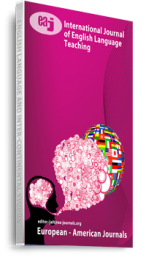Education constantly grows with the growth of humanity. The curriculum in the Educational system of the Philippines has been altering for the changing times of generation. Unlike other countries that have 12-year basic education, the Philippine basic education has the least number of curricular years these recent years. Six years elementary and four years secondary. This recent decade, the country’s educational system has been suffering from various feedbacks, specifically when it failed to cater to the needs of the Filipino students.To keep abreast with the demand of the world’s changing technology, the education curriculum in the Philippines tried to keep in pace with the global trends. Finally, for the school year 2012-2013, the K to 12 basic education curriculum was finally implemented in the Philippines. Relevant to the teaching of English as one of the core subject in this curriculum, the overall goal of the Secondary Education Curriculum is to develop a functionally literate Filipino who can effectively adjust to various communication situations. Generally, the dual goal of the English Curriculum is to develop the leaners’ communicative and literary competence. Upon the implementation of the new curriculum in the country, English learning packages of the English 7 class has become the common instructional materials in the entire Philippines. The use of modules and learning packages in Grade 7 K to 12 basic education curriculum becomes the tailored instructional technique that may suit best to the students’ ability. Gone are those days when teachers dominate the classroom routine. As the twenty- first century approaches, the demand for better teachers and better quality instructions gets higher. As curriculum alters, instructional materials call for innovations because teaching- learning process is a matter of personal response. This study assessed the factors affecting English instruction of Grade 7 K to 12 Curriculum as perceived by the respondents along the following factors :module factor, teacher factor, student factor, school factor ,and parent factor. This study dealt with the following objectives : (1) determine the profile of the teachers in terms of gender, age,civil status, number of years teaching English subject, and ethnicity; (2 )detect how the respondents perceived the various factors affecting English Instruction of Grade 7 K to 12 Curriculum in the Division of Quirino along module factor ,teacher factor, student factor, school factor , and parent factor ( 3 ) detect the significant differences on the respondents’ perceptions for each factor that affects instruction when they are grouped by their profile. The researcher made use of structured questionnaires to obtain the necessary information and other data needed in the research. Interviews among the teacher respondents were also done to verify the answers to the questionnaires. The following were the highlights of the study: (a) Majority of the English teacher respondents were females, married and have started taking up units in their master’s degree. Majority of the teacher respondents were Ilocanos whose majority of age are within the range of 30- 39. In terms of their experience as English teachers, majority of the grade 7 teachers have been teaching within the range of 1-5 years. (b) The respondents’ perception on the factors affecting English instruction in the K to 12 Curriculum is “much affected ” in terms of module factor, teacher factor, student factor, and parent factor; whereas, the school factor “moderately affects” the English instruction. (c ) There are significant differences on the perception of the English teachers on the factors affecting English instruction in the Grade 7 K to 12 Education Curriculum when they are grouped according to their age, and number of years in teaching. (d) There are no significant differences on the perceptions of the English teachers on the factors affecting English instruction in the Grade 7 K to 12 Education Curriculum when they are grouped according to their gender, civil status, educational attainment, and their ethnicity.
Keywords: Descriptive Research, English instruction, K to 12 basic Education Curriculum, Philippines

